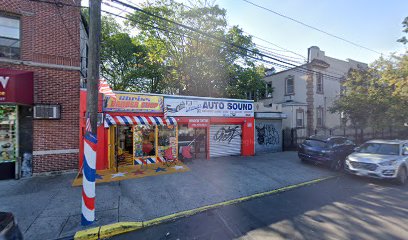Atlantic Avenue’s desire to form a Business Improvement District (BID) in the Downtown Brooklyn area is making serious headway.
“We’re in the public outreach phase of the process and gathering ballots for our first public meeting,” said Elizabeth Crowell, co-chair of the BID’s steering committee and owner of Sterling Place, 363 Atlantic Avenue.
“We have the largest property owner, LICH (Long Island College Hospital), on board and a huge coalition of businesses from small boutiques and retail stores to larger stores like Sahadi’s (187 Atlantic Avenue),” she added.
Crowell said the proposed BID’s boundaries will be Atlantic Avenue from the waterfront to Fourth Avenue and will include one block north to State Street andone block south to Pacific Street.
If enacted, the BID would abut the Court, Livingston, Schermerhorn BID and join the ranks of other Downtown Brooklyn BIDs including the Montague Street and the MetroTech BIDs.
A BID is a formalized way for businesses in a commercial area to fund extra services in their community.
These services normally include extra sanitation, security, marketing, holiday decorations and advocacy.
The way a BID works is every business and property owner in a determined area is assessed and each contributes a certain amount of money per year.
The money goes to the city, which holds it, and then reallocates it to the BID.
The BID, which is made up of the merchants and property owners, decides how to spend the money and create its own priorities.
Crowell said there are about 300 properties in the proposed Atlantic Avenue BID, but some are residential where residents are charged a nominal fee of $1 a year.
“With the ballots that have come back so far the rate is about 85 percent in support. This includes property owners, commercial tenants and residents, but at end of the day, the property owners are the ones with most say because the assessment is delivered to property owners from the Department of Finance,” Crowell said.
Often property owners pass along the increased assessments to merchants, but Crowell said business owners also seem to like the idea because the BID structure collectively aggregates buying power and makes for a collective voice.
Under city ordinances concerning BIDs, there must be two public meetings before a BID moves to the City Council for formal approval.
Crowell said she hopes to have the first public meeting by sometime in March.


















